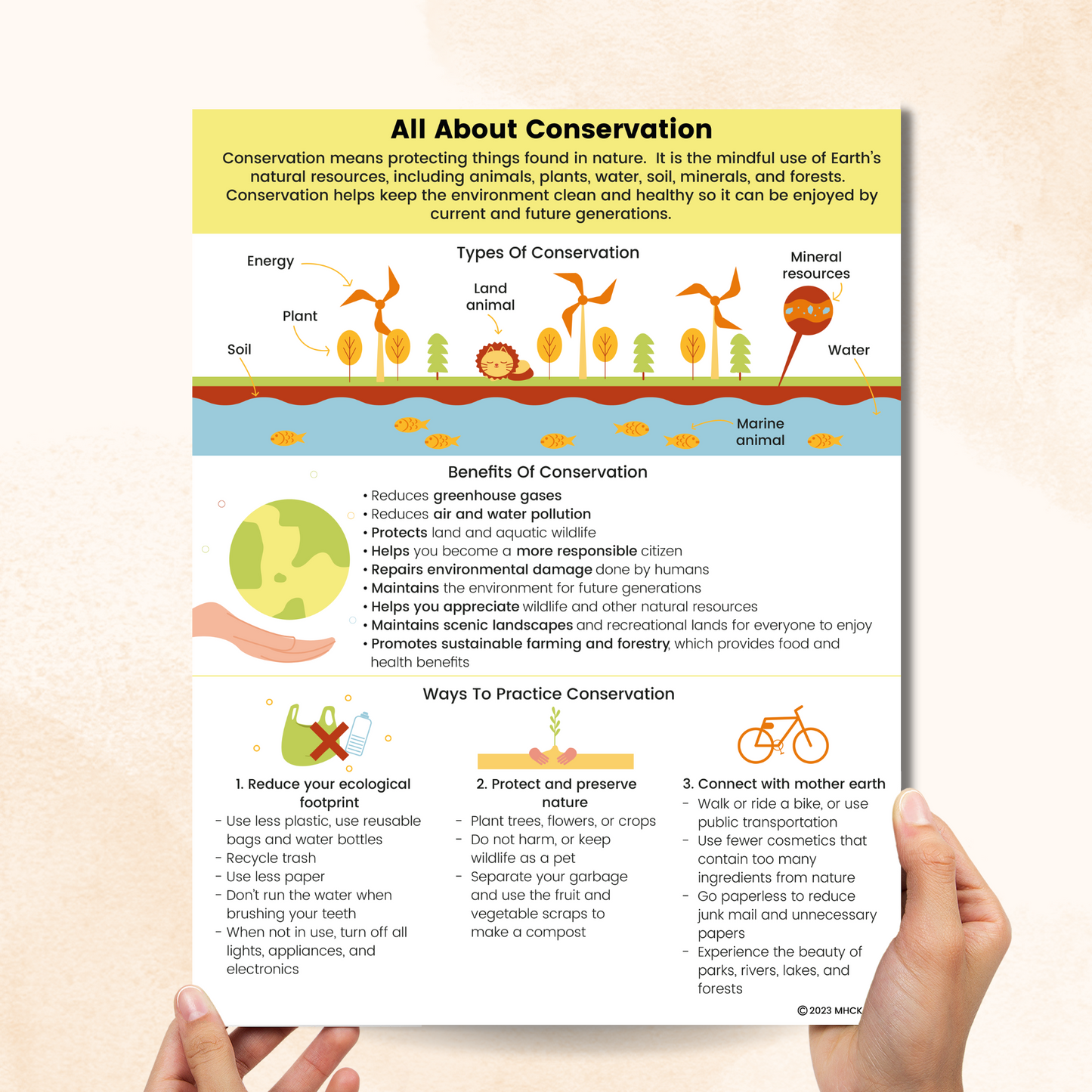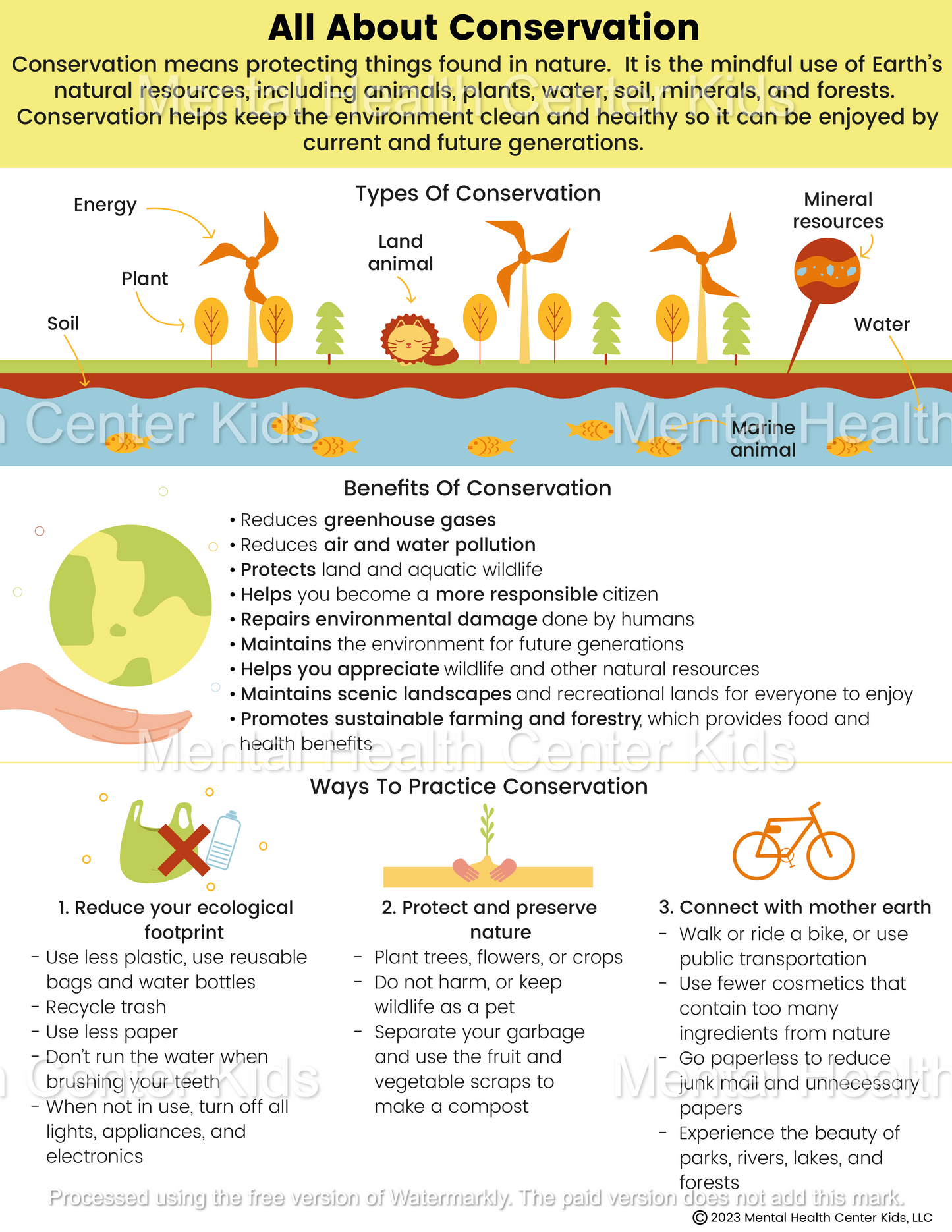All About Conservation



Conservation involves actively caring for Earth and the diverse life it supports. It includes making sure that plants and animals thrive. A survey of over 1,000 school students found that 28% of children and adolescents in urban settings feel a meaningful bond with natural environments — a piece of information that encourages schools to integrate nature-based learning into their curriculum.
The All About Conservation handout is designed to help clients take action to safeguard our planet. It starts by defining conservation and then outlines various ways they can participate in protecting Earth's resources. The handout also highlights the benefits of conservation efforts and provides practical tips for integrating conservation practices into daily life.
With this handout, kids and teens can learn how to responsibly use and protect natural resources so that future generations may be able to enjoy them. When discussing conservation, we recommend connecting concepts from the handout to local or global conservation efforts. Teachers may engage students with activities such as role-playing scenarios and take them on nature walks to boost their learning.
This handout pairs well with our Conservation Worksheets, which provide activities for additional learning.
*This item is an instant digital download. A link to download your files will be emailed to you once payment is confirmed.
Want more resources like this? Check out our full catalog of character education worksheets.
References:
- Chawla, L., & Derr, V. (2012). The development of conservation behaviors in childhood and youth. The Oxford Handbook of Environmental and Conservation Psychology, 527-555. https://doi.org/10.1093/oxfordhb/9780199733026.013.0028
- Keith, R. J., Given, L. M., Martin, J. M., & Hochuli, D. F. (2021). Urban children’s connections to nature and environmental behaviors differ with age and gender. PLOS ONE, 16(7), e0255421. https://doi.org/10.1371/journal.pone.0255421
- Price, E., Maguire, S., Firth, C., Lumber, R., Richardson, M., & Young, R. (2022). Factors associated with nature connectedness in school-aged children. Current Research in Ecological and Social Psychology, 3, 100037. https://doi.org/10.1016/j.cresp.2022.100037
- Thomas, I., Martin, A., Wicker, A., & Benoit, L. (2022). Understanding youths’ concerns about climate change: A binational qualitative study of ecological burden and resilience. Child and Adolescent Psychiatry and Mental Health, 16(1). https://doi.org/10.1186/s13034-022-00551-1
- Instant digital download
- File: PDF
- Size: 8.5" x 11"




